Idon’t necessarily consider myself a “prepper,” but I do like to be prepared in case of emergencies. When I was a Boy Scout, I was taught to “Be Prepared.” We often think of emergency preparedness as having supplies and plans in place for first aid, food, water, battery power, shelter, important documents, and money. Those are all good and necessary preparations, but how about communications? Instant communications with cellphones and the internet have spoiled us. What happens if those forms of communication fail? It’s admittedly old-school technology, but amateur (ham) radio works when other forms of communication fail.
Before there were cellphones, the internet, or even television, if you don’t count smoke signals and signal flags, the world’s first form of wireless communication was radio. The ability to hear voices, music, and news through thin air was (and still is to me) somewhat magical. I’ve always had a personal interest in radio. As a middle-schooler, I enjoyed building crystal radio kits that allowed me to hear distant radio stations from around the world without batteries! Shortwave radio stations allowed me to hear news and music from faraway places like London through the BBC World Service, the Soviet Union (now Russia) through Radio Moscow, and obscure Pacific islands whose primary connection to the world was radio.
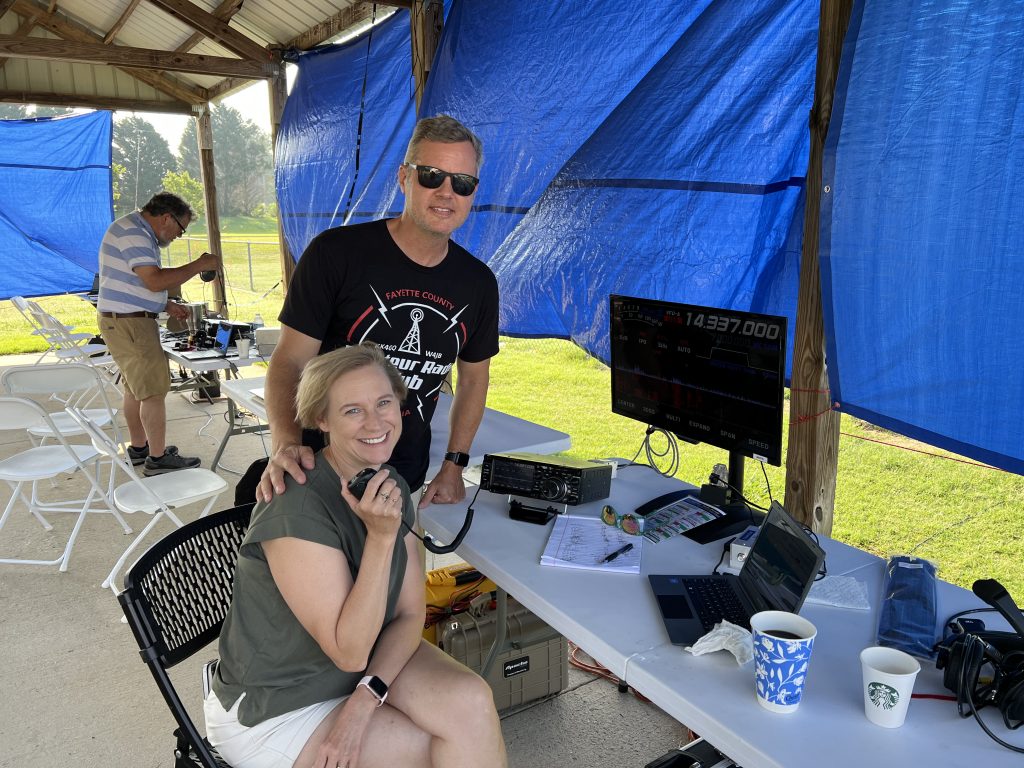
Closer to home, I enjoyed listening to scanners – not the type of scanner you hook up to a computer to make copies of documents, but radio scanners that gave me the ability to listen to our police, fire, airport traffic, and more. Radio opened up a whole new world to me, and I remained fascinated with it all through high school. Yes, Radio Shack was one of my favorite stores at the mall.
My first exposure to two-way radio (meaning that I could listen and talk) was probably a set of GI Joe walkie-talkies that my brother and I got for Christmas one year. We had fun riding around the neighborhood on our bikes, talking on the radio about “secret missions.” Go watch “Stranger Things” – Dustin was me in high school (although I was a little skinnier). During the CB radio craze of the late 70s, my father put one in his truck, and I enjoyed talking to people as we traveled down the highway, saying things like, “Breaker One-Nine, this is the Little Polack.” Yes, my CB handle was “Little Polack,” and my dad was the “Georgia Polack.”
In the Army, we used radios a lot, but as an officer, I had a soldier assigned to me as my RTO (Radio Telephone Operator), so most of my radio communications went through him. While I was in the Army, I learned about something called MARS (Military Auxiliary Radio System), where a group of amateur (ham) radio operators helped relay information to/from home using radio and phone patches. Satellite phones were becoming a thing, but my dad said MARS actually helped him find out about my birth while he was in Vietnam.
The world changed dramatically on September 11, 2001. By then, cell phones were very prevalent, but it became clear to me that we had an overreliance on the internet and cell technology. I saw firsthand how many people in New York were literally cut off from the world, even as they were in the middle of the action. We knew more about what was going on by watching it on TV at home than the people directly involved in the situation. This was a wake-up call for me to become more individually prepared for communications. Remembering what I knew about the usefulness of ham radio, I decided to get my license the following year.
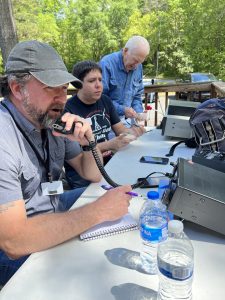
Becoming a ham radio operator requires taking an FCC multiple-choice test administered by a group of certified Volunteer Examiners. It’s not a hard test. In fact, the questions and answers are made public. Most of the test questions pertain to some basic rules and radio knowledge. Once I got licensed, my wife Mary Catherine decided to get licensed, so she took the test. We found ham radio useful for keeping in touch around town. While she was driving the minivan around with our kids, I could talk to her on the radio and save precious cellphone minutes. Back then, you paid for cell phone calls by the minute. Ham radio was and still is free. My ham radio callsign is KI4ASK, and her callsign is KI4HHI, both of which were assigned to us by the FCC.
For the past twenty years, we’ve found ham radio to be both a fun and useful hobby. Here are some of the things we’ve done with our ham radio licenses:
- Maintaining contact with each other and friends on hiking trips, where cellphone coverage is spotty.
- Supporting local events like the Tri-PTC Triathlon, PTC Classic 15K, Run the Ridge 5K, and others with radio communications.
- Providing weather spotting assistance to the National Weather Service through their Skywarn program.
- Going on “fox hunts,” which are scavenger hunts for hidden radio transmitters.
- Talking to people around the world, which was especially fun during the sequestered COVID-era.
- Listening to what’s going on in Eastern Europe and the Middle East firsthand.
- Talking to astronauts aboard the International Space Station!
- Making friends right here in our community through the Fayette County Amateur Radio Club.
- Sending email over the radio without the internet using Winlink.
- Sending text messages over the radio without cellphones using APRS.
- Supporting our first responders with backup communications through ARES (Amateur Radio Emergency Service).
- Assisting Georgia Emergency Management (GEMA) / Homeland Security as volunteer auxiliary communicators through the AuxComm program.
If the grid goes down, we know what to do and how to stay in touch with each other and members of our community. In order to help people in our community learn about this fun and useful hobby, the Fayette County Amateur Radio Club and Fayette County Parks and Recreation have teamed up to offer a one-day “ham cram” class and testing session on Saturday, February 17th. I bet some of you reading this article have thought about getting a ham radio license. Now’s your chance.
For more information about the upcoming ham radio class, including registration, please go to the Parks & Rec registration site using this link.
Full disclosure – my wife Mary Catherine is the Assistant Director of Parks & Recreation. I’m a Past-President of the ham radio club. This was her idea to offer the class, but it’s one that I fully support. I’ll be one of the instructors, as will a team of others who are committed to helping you pass the test and earn your license on February 17th.
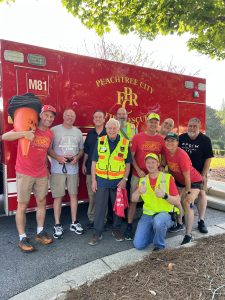
We have a very active ham radio community here in Fayette County. There’s a network of five radio repeaters that have the ability to provide communications across the county and even link with other communities for statewide coverage. If the towers go down, we have the ability to do simplex, point-to-point communication. Lots of people in our community have their license, including our 911 Director, Katye Vogt, and the Publisher of this paper, Cal Beverly. Among the ranks of our members, we have people of all walks of life including students, first responders, educators, business people, retirees, and young adults.
So many of us, myself included, spend a lot of time on the internet. You are reading this article through a web browser, and you’re probably active on one or more social media outlets. I am as well, but what if all of that goes down? How would you get the news, find out what’s going on, or talk to your family? Ham radio is a hobby that’s both fun and useful. It’ll work when all else fails.
If you have any questions, don’t hesitate to comment here or contact me directly.
[Joe Domaleski, a Fayette County resident for 25 years, is the owner of Country Fried Creative – an award-winning digital marketing agency located in Peachtree City. His company was the Fayette Chamber’s 2021 Small Business of the Year. Joe is a husband, father of three grown children, and proud Army veteran. He has an MBA from Georgia State University and enjoys sharing his perspectives drawing from thirty years of business leadership experience. Sign up for the Country Fried Creative newsletter to get marketing and business articles directly in your inbox. ]





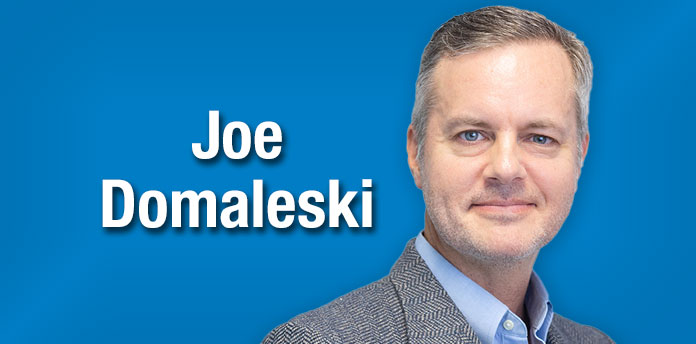
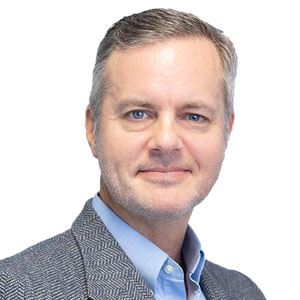

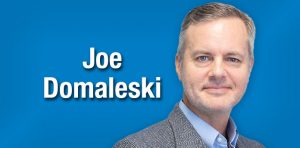
Leave a Comment
You must be logged in to post a comment.